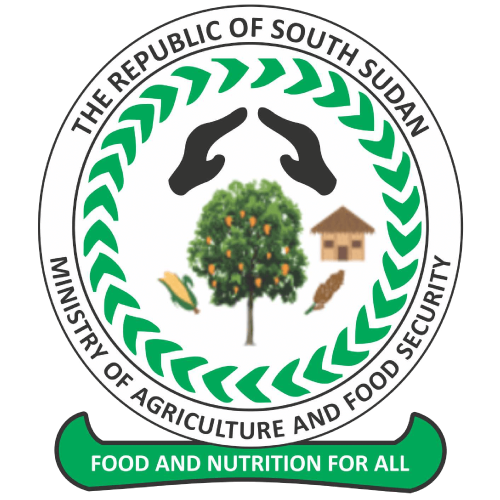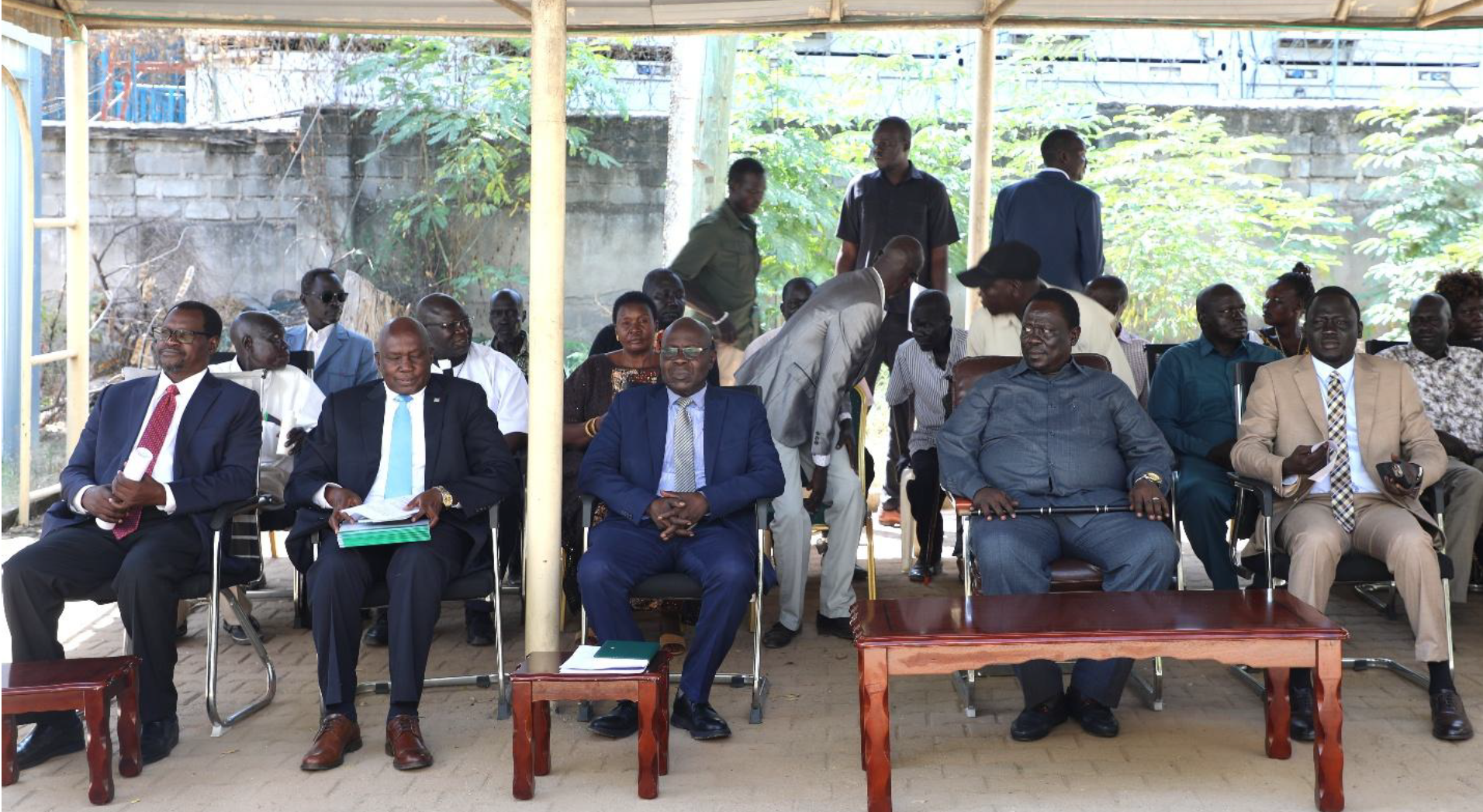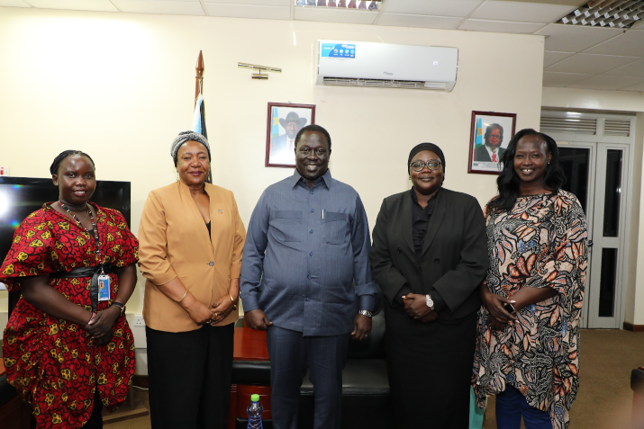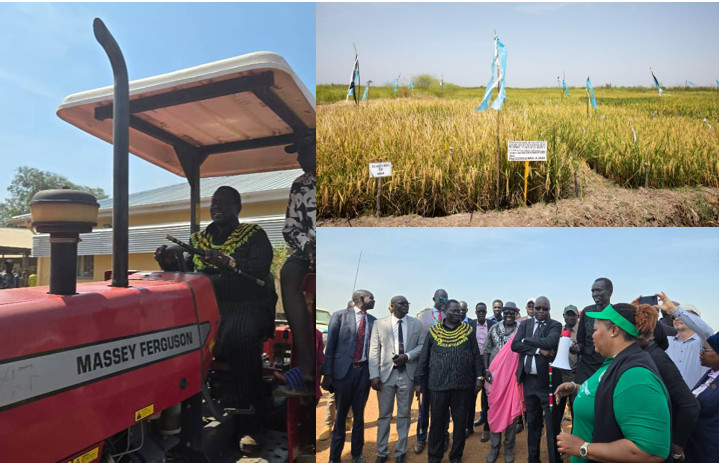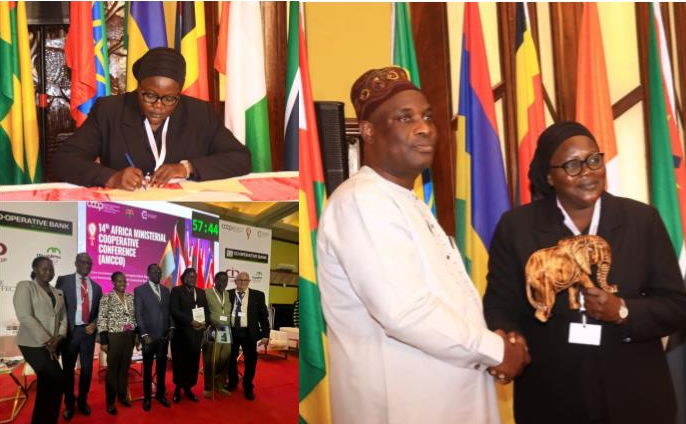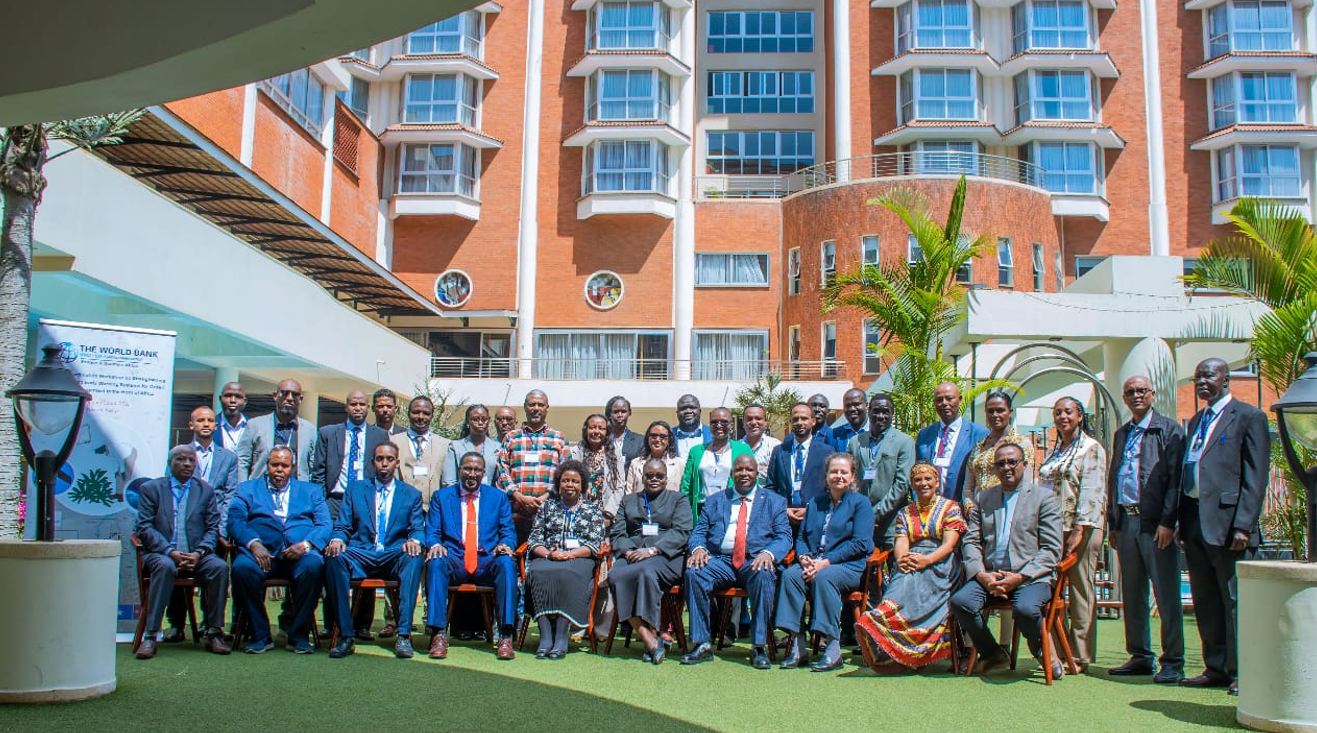 Hon. Josephine Lagu Yanga, Minister of Agriculture and Food Security (MAFS), middle right, Dr. Mohamed Abchir, UNDP Resident Representative, middle left, and Ms. Caroline Mwongera, IFAD Country Director for Eritrea and South Sudan, thirds from left, join other dignitaries for a photo after launch of the READ Project in Pyramid Hotel in Juba. Photo Credit: MAFS.
Hon. Josephine Lagu Yanga, Minister of Agriculture and Food Security (MAFS), middle right, Dr. Mohamed Abchir, UNDP Resident Representative, middle left, and Ms. Caroline Mwongera, IFAD Country Director for Eritrea and South Sudan, thirds from left, join other dignitaries for a photo after launch of the READ Project in Pyramid Hotel in Juba. Photo Credit: MAFS.
17 December 2024, Juba. The Government of the Republic of South Sudan through the Ministry of Agriculture and Food Security (MAFS), together with the International Fund for Agriculture Development (IFAD), Cooperative Bank of South Sudan (CoBSS), and the United Nations Development Programme (UNDP) officially launching the Rural Enterprises for Agricultural Development (READ) project at Pyramid Hotel in Juba, South Sudan on Tuesday, 17 December 2024 at 1200hrs.
The Rural Enterprise and Agricultural Development (READ) project was approved by the Global Agriculture and Food Security Program Board on 21 December 2022 with a total project cost of US$ 20.0 million. The Cooperative Bank of South Sudan contributed US$ 4.0 million in matching grants bringing the total project funding to US$ 24.0 million. The project became effective on 1st Aug 2023 following the signing of the financing agreement between IFAD and the government of South Sudan. The project output agreement was signed on 24 November 2024, between the Ministry of Agriculture and Food Security with the implementing partner (UNDP).
The READ project is designed to promote private sector driven solutions for rural smallholders’ producers, by professionalizing rural producers’ organizations, including cooperatives and less organized or informal groups at pre-cooperative stage. The project overall goal is to ‘improve food security, income and resilience among the targeted rural households.’ The Project Development Objective is to ‘empower Rural Producers’ Organization (RPOs) as sustainable and resilient food value chain players. The strategy for achieving this is built on the RPO (Agricultural Producer Groups and Cooperatives, as well as Village Saving and Loans Associations (VSLAs), Savings and Credit Cooperatives (SACCOs)) and MSEs, as central to restoring individual/household and collective capital and assets, and towards attaining greater social cohesion and peace consolidation.
The geographical coverage includes counties of Aweil Centre, Magwi, Maridi, Nzara, Yambio and Renk targeting approximately 27,511 households (equivalent to 162,315 beneficiaries) through their RPOs (29 cooperatives, 240 APGs, 300 VSLAs and 24 SACCOS). Among the target RPOs, special consideration will be given to women (50 percent), youth (70 percent) and vulnerable groups.
Hon. Josephine Lagu lauded the timely launch of the project, emphasising that “the rural people of South Sudan are among some of the most disadvantaged in the country, they face some of the most pressing challenges such as limited agricultural productivity, lack of access to markets, and insufficient enterprise opportunities, and yet agriculture production constitute more than 90 percent of their livelihoods. These challenges prevent our rural communities from meeting their needs as well as obstruct economic growth that in turn affect the development of the nation. When we came up with the idea of the Rural Enterprises Agricultural Development (READ) Project, we already had in mind an ambitious yet achievable vision to tackle these challenges to economically empower our rural people and put them on the path of sustainable development.” , Dr. Mohamed Abchir, UNDP Resident Representative praised the launch as a “significant moment in our shared vision to improve the food security situation in South Sudan. It is our shared commitment to addressing immediate agricultural challenges and build long term sustainability”. Elijah Wamalwa, the CoBSS Managing Director underscored the relevance of the READ project because “South Sudan has the potential and capacity to feed the region, but there is a need to equip farmers through capital and mechanization support to achieve this potential”.
